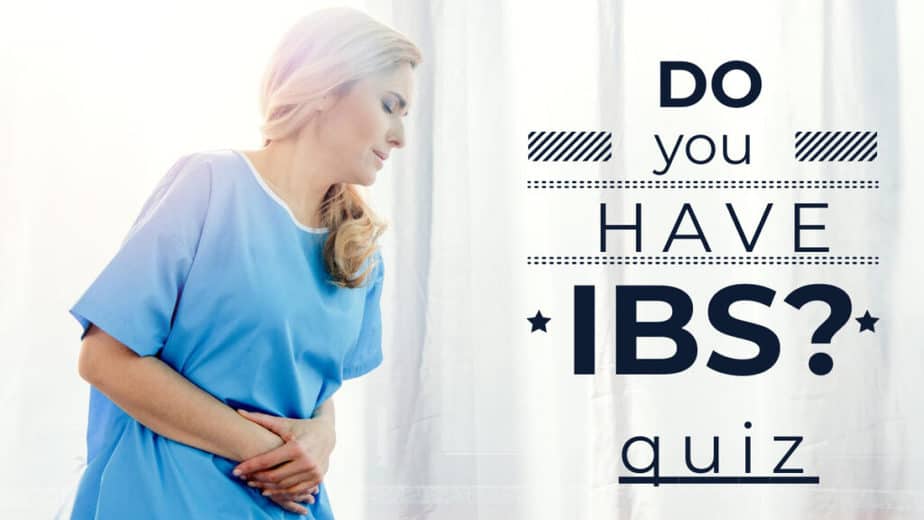There is no known cure for IBS. Once you have been diagnosed with the condition you must learn how to manage your symptoms to alleviate the suffering you endure.
Ginger, renowned for its spicy kick and medicinal properties, has been a cornerstone in traditional remedies for thousands of years. But when it comes to Irritable Bowel Syndrome (IBS), does this fiery root help or hinder? Many people say that they swear by ginger for IBS relief.
In this article, we’ll explore the intricate relationship between ginger and IBS, shedding light on its potential benefits and concerns
This article will go through the various benefits of ginger and how to use ginger to get those benefits.
What Is IBS and Its Symptoms?
IBS is a condition in which abdominal pain is associated with a change in stool frequency or form. There are a few different types – constipation predominant, diarrhea predominant, or mixed IBS, depending on the stool form and frequency.
Common symptoms of IBS are stomach cramps, bloating, trapped gas, and excessive flatulence as well as more severe constipation or diarrhea.
Sometimes, abdominal pain and cramps can be relieved with a bowel movement, and that’s why ginger is a popular natural remedy. It has many gut health benefits.
- Related article: Relieve Your IBS Pains
What Is Ginger?
Ginger is a type of flowering plant known as a rhizome. This is native to Southeast Asia but the massive popularity of the plant means it can now be found across the globe.
Ginger is part of the family Zingiberaceae, the same family as turmeric.
Ginger plants can grow to be about 3 feet tall. They are easy to identify as they grow groups of green-purple flowers.
The inside of the ginger root is commonly yellow like we see in the stores, but can also be red or white.
As ginger is a tropical plant, it can be harder to grow in colder climates. Provided that you keep it growing indoors, it should be hardy enough to survive.
You can grow your own ginger plant by selecting a root at the market with buds attached.
It should also be about 3-5 inches in length. When you get the root home, soak it in water for a few hours and then plant in a pot.
The History Of Ginger As A Holistic Treatment
Long before ginger became a global culinary favorite, it held a revered place in ancient medical practices. With records dating back over 2,000 years, both Chinese and Indian medicinal systems utilized ginger for its potent anti-inflammatory and digestive properties – settling upset stomachs for millions.
It was also used as a tonic for many different ailments like swelling, inflammation, bloating, and nausea.
In Ancient Greek times it was common to eat a piece of ginger wrapped in bread after the evening meal. This was believed to settle the stomach for sleeping.
It is also commonly consumed as an anti-nausea supplement.
Nutritional Profile: The Power of Gingerol
The primary active compound in ginger is known as gingerol. This is an oil that is linked to capsaicin, the spicy oil in chiles.
Gingerol activates spice receptors on your tongue, which is why it has a fiery kick.
Ginger can affect the enzymes found in our bodies. The specific enzymes affected are trypsin and pancreatic lipase – both of which are involved in the digestive process.
This triggers your stomach to empty more rapidly. This in turn reduces indigestion, nausea, bloating, constipation, and gas build up.
This impact has been seen with doses of just 1.2 grams powdered ginger consumed before meals.
The Effects Of Ginger On IBS
There is a lot of anecdotal evidence to suggest that ginger is one of the more effective natural home remedies for IBS symptoms.
It has strong anti-inflammatory and antioxidative properties, meaning that it can help reduce intestinal inflammation and cramping.
There are anecdotal reports of ginger causing a reduction in gas and bloating, plus preventing indigestion. The best evidence is for it’s antiemetic properties.
Ginger can help to induce the emptying of your stomach and with the motility of your bowels. It can help offer relief those times when you have a bowel movement but still constipated. That will all add up to help alleviate IBS symptoms.
It is believed to relax the smooth muscle that is found in the gastrointestinal tract while simultaneously relaxing the nausea centers found in your brain. This makes it a highly useful remedy for IBS.
Ginger can also stimulate the production of saliva and bile in your body. This can help make food move through your digestive tract more smoothly, making it much less painful.
How Much Ginger Should You Take For IBS?
There is no prescribed dose for ginger. Many scientific and medical studies supply participants with 1 or 2 grams of ginger capsules a day and monitor the results.
The recommended dosages vary according to the form and brand of ginger you chose. Ultimately ginger is unlikely to do you much harm.
There are many different iterations that you can find ginger in. These include teas, powders, capsules, or even the raw, root form.
If you have opted for the powdered ginger, the correct dose is around half a teaspoon. If you choose to consume fresh ginger, have about 2 teaspoons daily. This is the minimum dose required to feel the effects.
Generally, the standard dose of ginger is between 1 and 4 grams of powdered ginger (or 2-8 teaspoons of fresh ginger), between 2 and 4 times daily.
Are there any side effects of consuming ginger?
If consumed in excessive quantities, ginger can cause mild diarrhea, gastrointestinal discomfort, flatulence, and heartburn.
If you are on anticoagulant medication, there is a chance that ginger could interfere with their effectiveness. You should consult your doctor before incorporating high quantities of ginger into your diet.
How To Incorporate Ginger Into Your Diet
There are many ways to do this as ginger is such a versatile flavor. Lemon and ginger tea is one of the easiest. Slice an inch of fresh ginger root into discs, and then do the same with half of a lemon.
You can peel them if you wish, but it will not make much difference.
Squeeze a little lemon juice into your mug and then fill with freshly boiled water. Allow to steep for about 5 minutes and then consume.
Gingerbread is a popular sweet treat. They also make ginger hard candies and chews. This is a delicious way to get in some of the health benefits, even if it is not the healthiest of snacks.
Many Asian dishes benefit greatly from the addition of a little freshly grated ginger.
Ginger and IBS – A Natural Remedy Worth Considering
While there’s no one-size-fits-all answer to managing IBS, ginger offers promising potential as a natural remedy. Its anti-inflammatory properties, combined with its ability to promote smooth digestion, make it a favorite among many IBS sufferers.
However, as with any supplement or dietary change, it’s essential to start slowly and monitor your body’s response.
Whether you choose to incorporate ginger through teas, capsules, or fresh preparations, always prioritize your body’s unique needs and reactions.
For more articles on IBS, here are some popular ones:


